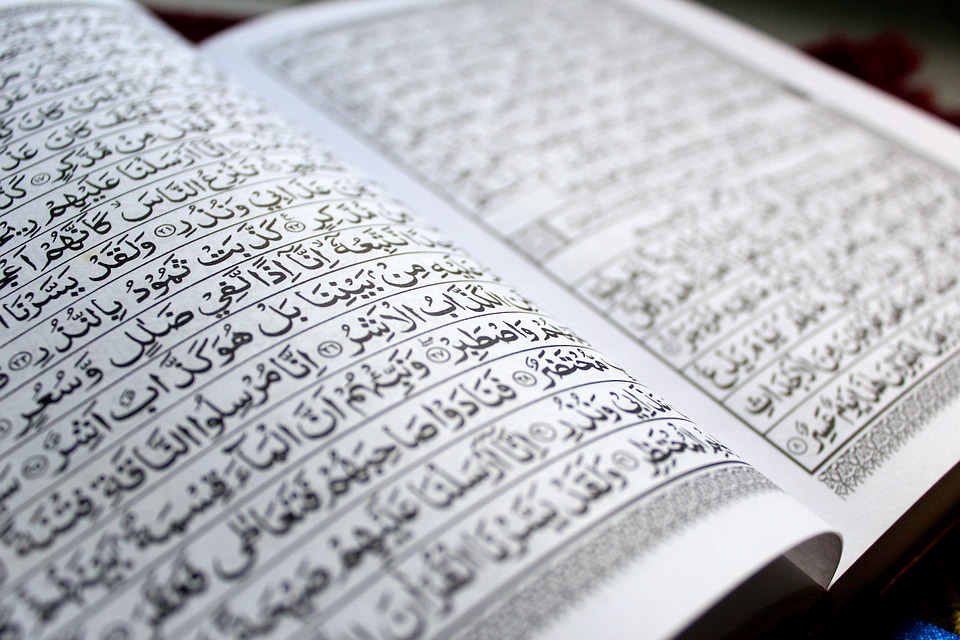6 Crucial Self Confidence Tips
Here are six crucial self confidence tips. These tips are extracted from my eBook: Best Of Creation: An Islamic Guide To Self-Confidence. To read the full eBook, grab a copy here.
Thinking Straight
The human mind is such that if we are not monitoring our thoughts, we tend to think negatively. Perhaps it is Shaytaan trying to cause us to despair, but the idle mind is a dangerous thing and is often susceptible to negative thought patterns.
The key to overcoming this is to monitor your thoughts and be in charge. Keep a diary for a day of the kind of thoughts that pass through your mind. Mark them down as positive or negative, compare the amount of positive and negative thoughts and identify causes.
Once you are away of your thought patterns and the triggers, the next step is to replace a negative thought with a positive one. If your mind is telling you that Allah will never forgive you, remind yourself that Allah forgives all those who sincerely seek forgiveness. If you are thinking that you will never be successful in life, remind yourself that Allah is in control of destiny and He can help you succeed in miraculous ways.
Make a list of positive thoughts and remind yourself of them daily. For common negative thoughts, write down a positive response and remind yourself of it whenever the negative thought comes to mind. It also helps to look in a mirror and talk confidence into yourself.
It is Allah’s mercy that He does not hold us accountable for the thoughts that stray into our mind, but we are accountable for the thoughts we choose to entertain and act upon. Be an active thinker and don’t leave room for the whisperings of the devil.
Avoid the Blame Game
When developing the habit of positive thinking, it is important to weed out and remove negative thought patterns. A common negative thought pattern that causes low self-confidence is the blame game.
Many of us do not want to accept responsibility for our actions, so we look for something or someone to blame for our failures. This is also known as the victim mentality, were one feels one’s entire life is just being a victim of circumstance. It is a very fatalistic attitude and this unislamic.
Here are some common examples of the blame game in action:
“Society will never accept me if I do, so why bother trying,”
“The world we live in works with a certain system, I can’t try something outside that system,”
“My parents expect me to do this kind of job for the rest of my life, I can’t disappoint them by doing what I want,”
“The world is a bad place and there is nothing we can do about it,”
“I was raised like that, I can’t change who I am or what habits I developed”
“This is the local culture, and there is nothing we can do to change it,”
As you can see from these examples, the blame game creates an attitude of defeatism. Having something or someone to blame for one’s failure to act is easy, and eases some of the guilt one feels for not doing what you needed to do.
As Muslims, we cannot blame others for our shortcomings. Allah has created each of us with the ability to do well, and to be our best. Nobody is to blame for our failure to act except our own selves. We must accept responsibility for our lives and decisions, only then will we feel empowered enough to move forward.
Be Yourself as long as being yourself is Halal
This is my personal motto. I spent my teenage years in a Darul Uloom whose culture was such that everybody was bullied into dressing alike, speaking alike and pretending that we are all the same, stripped of any individuality. This environment made me grow rebellious and I would upset the status quo with small attempts at being different.
As I studied Islam more deeply, I was amazed at how Islam has room for so many different personality types. The companions of the Prophet Muhammad (peace be upon him) were diverse in their personalities. They included scholars, warriors, leaders, businessmen, farmers, strict people, funny people, thinkers and followers.
This led to me formulating my motto: Be yourself as long as being yourself is halal. Allah does not ask us to be robots: looking alike, dressing alike and behaving like we don’t have any unique attributes. At the same time, we all have evil within us that needs to be suppressed, and that part of us should be controlled.
Be yourself. Do not worry about what people say, just be yourself whether that means being strict or humorous. Don’t pretend to be strict because others are, and don’t pretend to be funny because other people want you to.
Let your natural personality flow and you will feel confident and happy. If you need to change anything, change it for the sake of Allah to grow closer to Him. Base your life changes on pleasing Allah, not on pleasing people.
Be your genuine and best self and not only will you grow in confidence but people will appreciate your honesty and courage and will eventually follow in your footsteps.
Write Your Thoughts
Thoughts are very powerful, but often confusing. The human mind is not completely logical. Most of our thoughts and decisions are based more on emotion than logic, and it often isn’t clear whether we are thinking straight.
This can be very dangerous when it comes to negative thoughts. Negative thoughts are often exaggerated, emotional and unrealistic. But because we don’t really analyse them, we tend to believe our own minds too easily. One of the ways to counter this is to write down your thoughts.
This is the reason why many people keep diaries. Writing down your thoughts can be very powerful. It gives you an outlet to get all those thoughts and emotions out of your mind without hurting anyone else. It also gives you a chance to look at your thoughts from an outside perspective and analyse them in an unbiased manner.
The next time you have negative thoughts, try writing them down. Write whatever comes to mind, and read it later when you are in a better mood. You will then be able to discover what went wrong in your thought process and how untrue most negative thoughts really are.
Be in charge of your emotions
Humans are emotional creatures, and our emotions affect our confidence and productivity a lot. This is why it is important to constantly stay in control and feed yourself positive emotions.
Sometimes we allow others to control our emotions. We allow people to make us angry, to upset us, to depress us, to irritate us and as a result we head down an emotional roller coaster because of what someone else said.
Reality is that nobody can make you do anything, because you control your emotions. People can do what they want, but you choose how you react. You don’t have to become angry when someone insults you, you can choose to feel sorry for him instead. He must be having a hard day and took it out on you. You don’t have to be depressed if someone is not happy with how you live your life. You answer to Allah, not that person, so why worry?
Emotions affect our confidence is a major way. From today onward, tell yourself that you will not allow other people to dictate how you think, feel or behave. You live to serve Allah and if He is happy with your lifestyle, it doesn’t matter what people say. Don’t let them affect you, focus on what is important and don’t give people the keys to your emotions.
Be comfortable with who you are
Stop worrying about the shape of your nose, the way you walk, the tone of your skin or the sound of your voice. Allah made you exactly as He wanted you to be. Embrace that and be happy with it. Life is after all about pleasing Him and He doesn’t look at all that, He looks at our hearts and actions.
Become comfortable with your human flaws. Yes, you may have a stutter or a weak immune system. It’s all fine in the long run, stop worrying about that and focus on all the good Allah has blessed you with.
The day you stop worrying about all this and embrace your natural self is the day you stop killing your own confidence with negative self-talk. Replace it positive talk. You are as Allah wanted you to be, you can improve your thoughts, deeds and character so you will focus on that and not on the things that don’t matter.
To continue reading, purchase the full eBook here.








